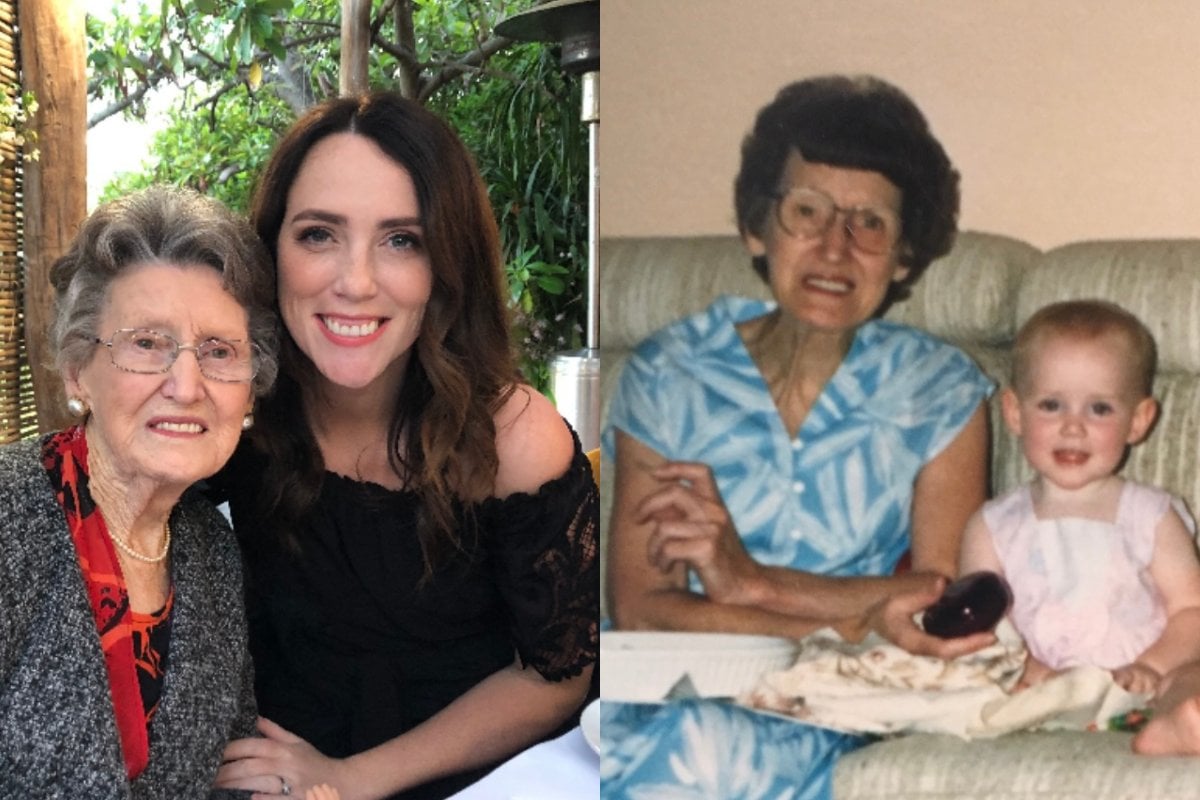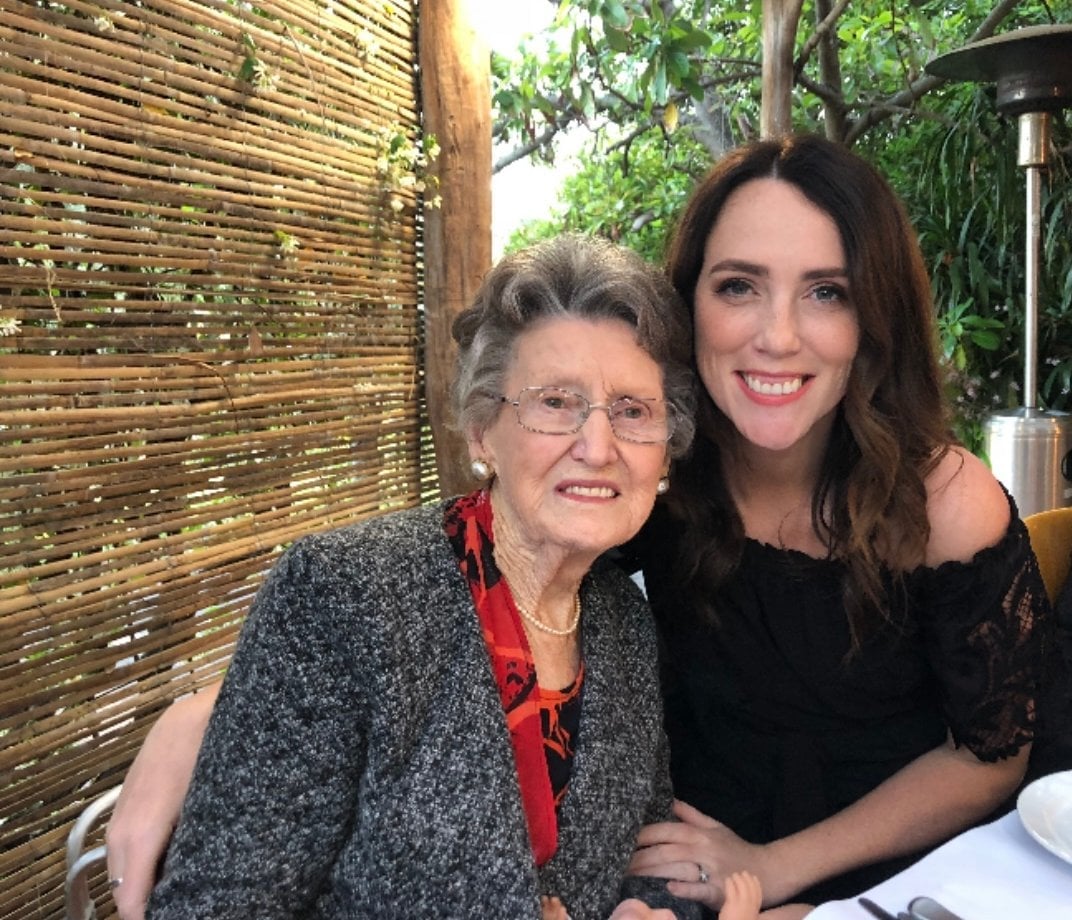
When my nanna passed away 18 months ago, I heard the same words of comfort quite a lot.
"At least she lived a long life," people often said.
I completely understood the sentiment. She was 87.
In the grand scheme of things, that is a long life compared to what some people get, and she’d proven to be an unstoppable force during her lifetime.
Watch: 5 Things About Grief No One Really Tells You. Story continues below.
After surviving three strokes in her 30s and raising two children after her divorce, my nanna Olive spent more than 30 years volunteering at her church and then her retirement village looking after people she called "the oldies" – despite the fact most of them were younger than her.
She never wavered in her commitment to be there for people who needed her.
As part of her volunteer work, she often sat with those who had no family in the last moments of their life so they weren’t alone.
But when it came to her last moments, I felt completely blindsided.
I know that might sound silly, but I just always thought we’d have more time.
She still had so much to live for and I’d given birth to her first great-grandchild, who I named after her, just six months earlier.

